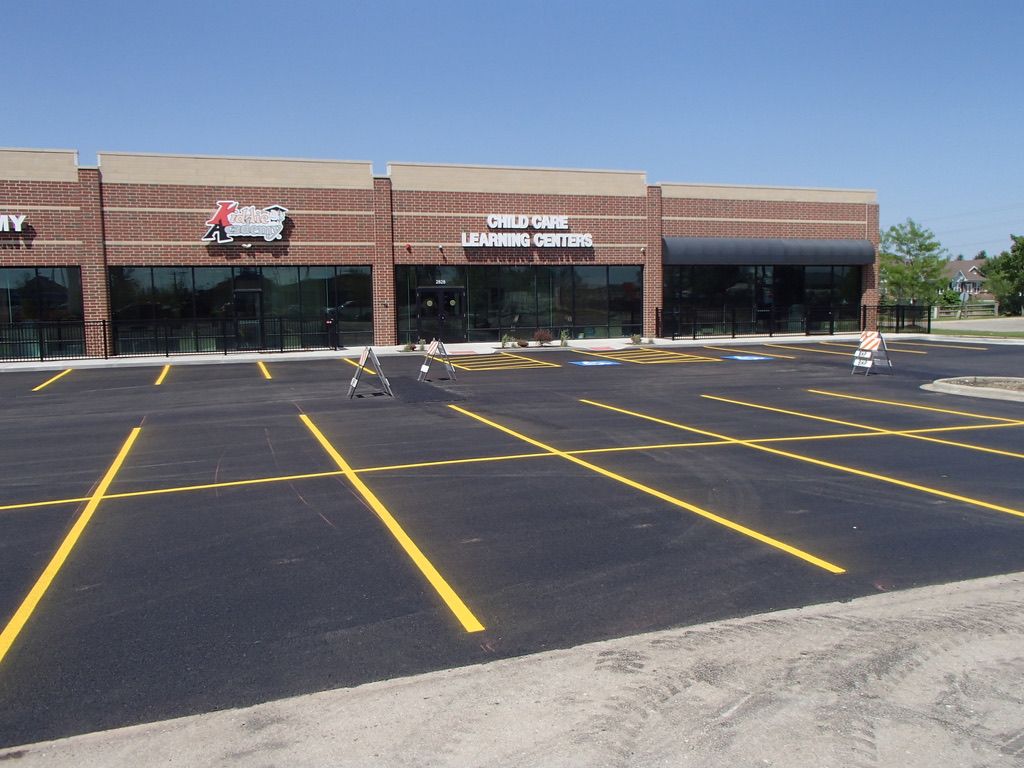It is common for Chicago paving contractors to receive calls from property managers who are trying to decide between asphalt and concrete paving. There are many differences between the two paving materials, and concrete is a better choice for certain uses. However, given the brutal winters that are typical in Chicagoland, asphalt is superior for most pavements, including parking lots. When correctly installed and maintained, asphalt pavements can flex with seasonal temperature fluctuations, and it tends to shed snow and ice faster than concrete. Furthermore, an asphalt pavement will cost less than a comparable concrete one, and you can usually have a new asphalt pavement open for traffic in less time. Nevertheless, there are a few things you should know about asphalt paving, including the best practices for routine care, repairs, and preventive maintenance.
What Should I Know About the Routine Care of Asphalt Paving?
Commercial paving typically endures quite a beating, and Chicago asphalt paving is no exception. It must endure snow, ice, and rain, and it must also endure hot, humid, summers. Snowplows and deicing chemicals can inadvertently inflict damage in the winter, and overheated tires can mar the pavement’s appearance in the summer. Customers can throw their trash in restaurant or retail parking lots, tenants can leave trailers stationary for months at a time, or hotel guests can park vehicles that leave behind deposits of gasoline, power steering fluid, diesel, brake fluid, or other petrochemicals. Most providers of Chicago asphalt paving services stress the importance of keeping pavements clean through routine sweepings and the removal of leaked automotive fluids. Stationary loads should not be left in the same position for more than a week, and snowplow operators should be experienced professionals. Line striping and pavement markings should be kept clean, visible, and free from damage, and those that fail to meet these three standards should be repainted.
What Should I Know About Repairing Asphalt Paving?
Some people think that they can save money by skipping pavement repairs, but the opposite is true. Damage will only worsen over time, and your pavement’s structural integrity can be so seriously compromised that you will be facing extensive major repairs, rebuilding your pavement many years earlier than expected, or both. Although a new pavement may not require any repairs for several years, you should develop the habit of conducting inspections every six months so that you can address problems as soon as they appear. Cracks and potholes should be repaired as rapidly as possible, and drainage issues should be quickly addressed. You should also budget for pavement resurfacing, which is also known as an asphalt pavement overlay, every 10 to 15 years. You will need to ask a reputable parking lot paving company to recommend a schedule that reflects the volume and type of traffic using your pavement. However, not all companies include pavement resurfacing among their normal Chicago asphalt paving services, so make sure that you select a commercial paving contractor with extensive experience and the proper equipment.


